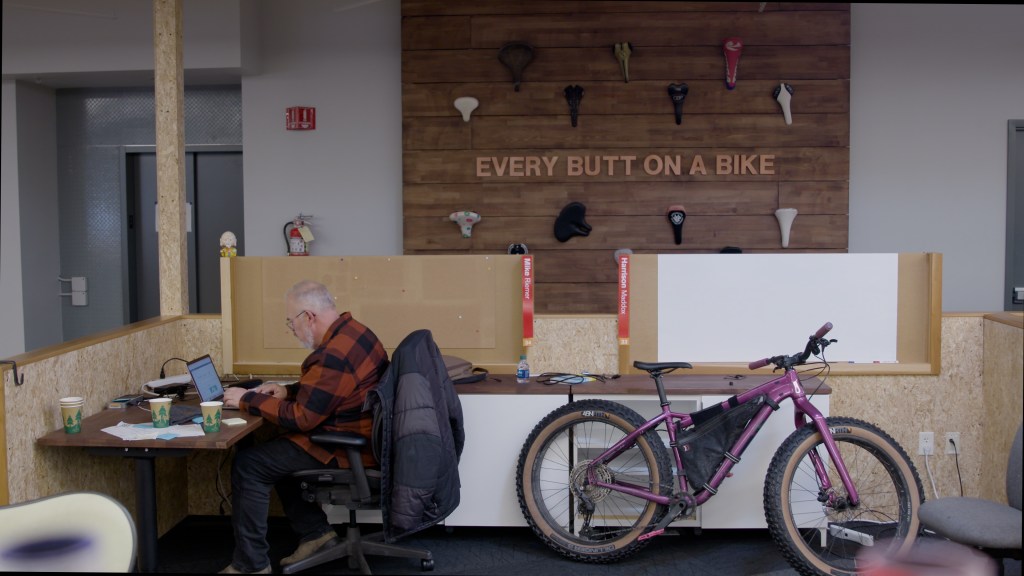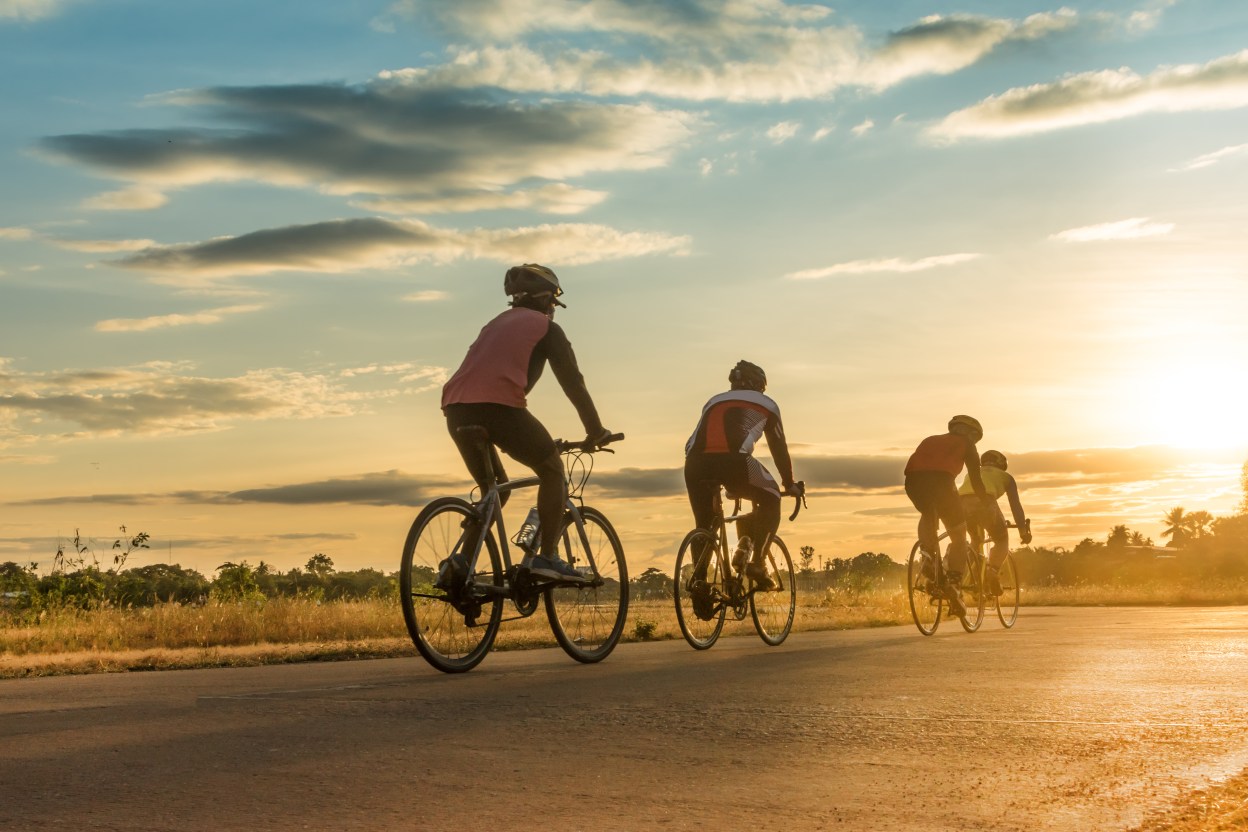At Minnesota-based Quality Bicycle Products—known by employees and fans as QBP—everything revolves around one gutsy phrase: “Every butt on a bike.” QBP aims to get everyone rolling. “We think the bike is a method of transport everyone should use,” says Joe Van Ert, systems architect, QBP.

Over four decades, QBP has grown from a scrappy mom-and-pop importer of specialty mountain bike products into the largest distributor of bicycles, accessories and parts in North America. The company distributes hundreds of brands and tens of thousands of unique products—many of its own design and manufacture, like Salsa, Surly and 45NRTH—to a sprawling network of independent retailers. “And your local bike shop is our number one customer,” says Van Ert.
The Twin Cities is one of the top metro areas in the U.S. for bicycles and bicycling, boasting the best urban bicycle trails in the nation with two of the most prominent routes in the 14,000-mile U.S. Bicycle Route system coursing through Minnesota—U.S. Bicycle Route 41 and U.S. Bicycle Route 45. In 2015, Minneapolis was voted the 18th friendliest city for bikes on earth. The cities have a rich tradition of cycling, much of it driven by QBP advocacy.
Profiting from values centered business
The bicycle industry is experiencing rapid change, driven by enthusiasts of every stripe, from road racers, mountain bikers and cargo carriers, to commuters quitting cars for e-bikes. The COVID-19 pandemic created a bicycle boom, increasing ridership by more than 50 percent, boosting QBP business and bringing new challenges.
“Will those riders stay on their bikes or return to public transport?” asks Van Ert. “Will the e-bike revolution persist?” QBP faces different challenges now, many of them driven by relentless innovation in the bike industry. “When we sold a bike 10 years ago, all we had to worry about was how to recycle it properly,” Van Ert says. “There’s steel, aluminum and other raw materials in that bicycle, but now were dealing with electronics and batteries as well.”
A Certified B Corporation since 2021, the company’s core values advance bicycling communities and the bike industry. “At QBP, we aim to be the common thread that weaves together retailers, suppliers, industry partners and riders,” says Van Ert. This common thread also powers the company’s commitment to sustainability.
Ahead of schedule for its self-imposed 2030 carbon neutral deadline, QBP uses renewable energy sources across its facilities. “All our warehouses and distribution centers use solar power,” says Van Ert. “Domestic operations are currently 52 percent solar powered and will reach 100 percent by 2029. All our distribution centers are electrified—we use no gas. And our main facility is a Gold LEED certified building, with all materials responsibly sourced.”
Several years ago, QBP decided to open another warehouse to reduce its carbon footprint for transportation. “We were trucking products all the way to Minnesota from the east and west coasts, and we wanted to reduce that use of fuel,” says Van Ert. Company leadership asked employees how many would be willing to forfeit some of their profit sharing that year to invest in a warehouse in Pennsylvania. “We knew that investment would cut into our profit, but when almost everyone in the room raised their hand, I realized the company mission was real. Though this might not be the most profitable decision, it was the right decision for the environment, and right for us to do it then.”
Walking the talk for climate
QBP walks the talk and encourages employees to do the same. “We pay our employees to bike to work—six bucks a day—and pay them to do errands by bike, both at work and at home,” says Seth Nesselhuf, director of Corporate Social Responsibility, QBP. “The folks who design the bikes ride the bikes. Our proprietary products allow us to engineer sustainable materials into every part of our manufacturing, like getting recycled rubber into our tire compounds,” says Nesselhuf.
Operating an expansive distribution enterprise demands robust IT resources. QBP had planned to move its infrastructure to the cloud but accelerated those plans when its data center gave a year’s notice it would close. “We knew we needed the hardware we bought the prior year to keep the traditional stack running,” says Van Ert. “But we really wanted to modernize our stack in the cloud,” says Van Ert. Embracing a rapid migration, QBP looked forward to the advantages—including the increase in energy efficiency—a modern application stack could provide.
Our move to the cloud and adoption of VMware Cloud on AWS was initially a want, a desire, to be in the cloud. But being able to be in the cloud and still run our traditional apps was key to making the project a success in a short time frame.
Joe Van Ert, Systems Architect, Quality Bicycle Products
QBP chose VMware Cloud on AWS to launch its cloud transition. “Our move to the cloud and adoption of VMware Cloud on AWS was initially a want, a desire, to be in the cloud,” says Van Ert. “But being able to be in the cloud and still run our traditional apps was key to making the project a success in a short time frame,” says Van Ert.
As an environmentally conscious company, vendor flexibility provides QBP the ability to align with vendors with genuine green commitments. “If a company we’re working with doesn’t have a carbon neutral policy, or they’re not making efforts in that direction, we want the ability to move,” says Van Ert. “As a Certified B Corporation, we don’t want that tarnishing our record. That’s one reason we chose VMware.”
VMware solutions have been carbon neutral since 2018. With all its facilities fully powered by renewable energy since 2019, VMware has repeatedly earned awards for sustainability, including earning the top position in the 2022 JUST 100 awards for sustainable products and pollution reduction. VMware is on track to be Net Zero by 2030.
“What I’m excited about for controlling our carbon emissions is that we can take the total vision of what we are and what we produce and plug in globally with what is going on, and see how we are making a difference in the grand scheme of things,” says Nesselhuf. “We’re not only able to compare QBP with the rest of the bike industry, but also with the outdoor industry and the transportation industry and see that we’re making a real impact.”
With VMware Cloud on AWS, QBP realizes a double benefit, gaining greater sustainability by using infrastructure delivered by both VMware and AWS in tandem. By design, virtualization technology fundamental to VMware solutions reduces the hardware footprint, providing rapid, on-demand scalability and provisioning to maximize unused capacity. And VMware Cloud on AWS delivers more efficient power use by a factor of more than 3.6, with more effective cooling systems and greater efficiency on workload-optimized equipment. Renewable energy powers workloads on AWS to yield up to an 88 percent lower carbon footprint than on-premises workloads.
We must work with all our vendors, all our suppliers, all our retailers, because to be effective, we must unite as one. When it comes to our long-term sustainability strategy, it’s important to pair with like-minded companies like VMware, so we can all do better in the long run.
Seth Nesselhuf, Director of Corporate Social Responsibility, Quality Bicycle Products
QBP makes a point to align with suppliers and vendors who share its values. “We need to be engaged with what they are doing because ultimately their sustainability solutions are going to become ours as well,” says Nesselhuf. “We have to work with all our vendors, all our suppliers, all our retailers, because to be effective, we have to unite as one,” he says. “When it comes to our long-term sustainability strategy, it’s important to pair with like-minded companies like VMware, so we can all do better in the long run.”

